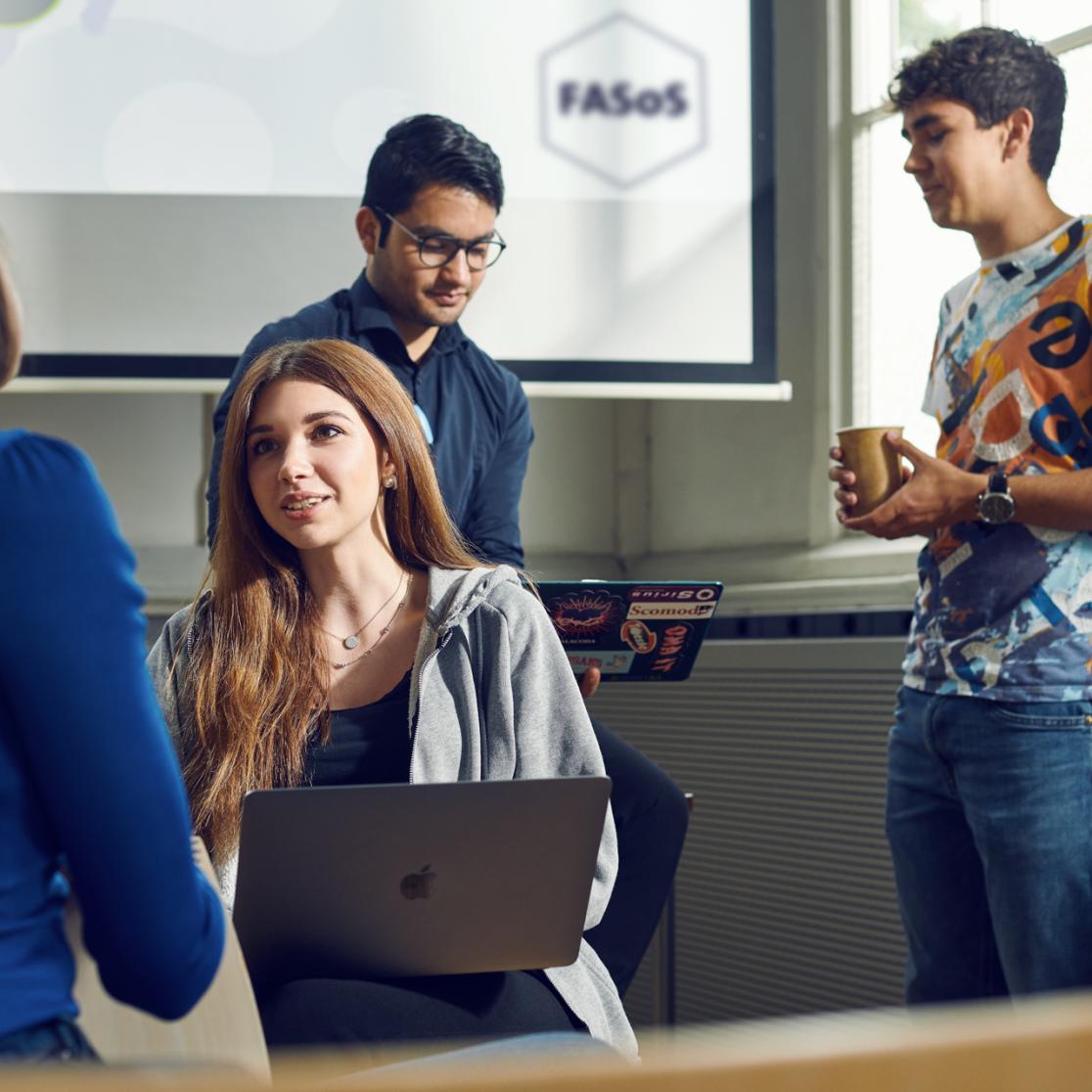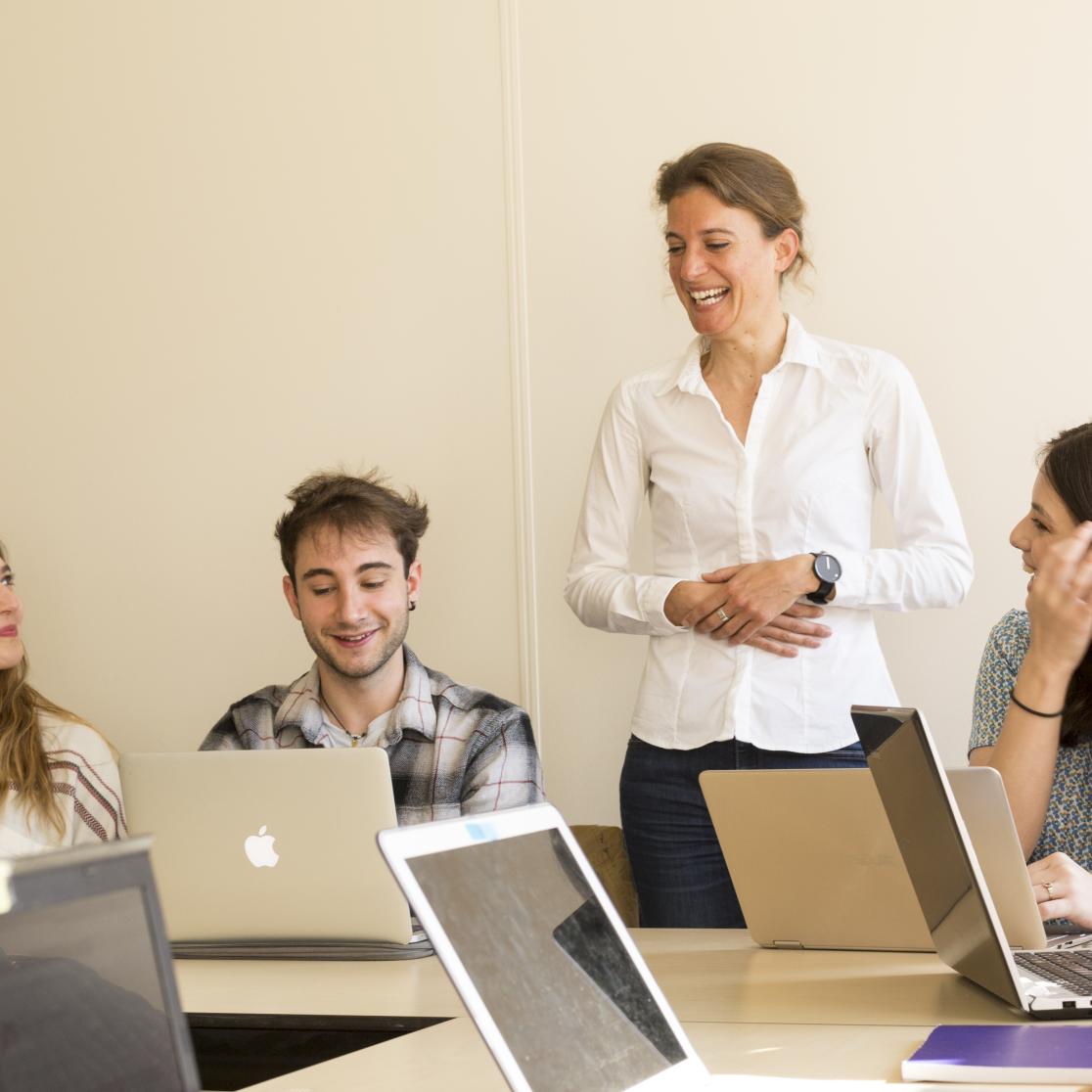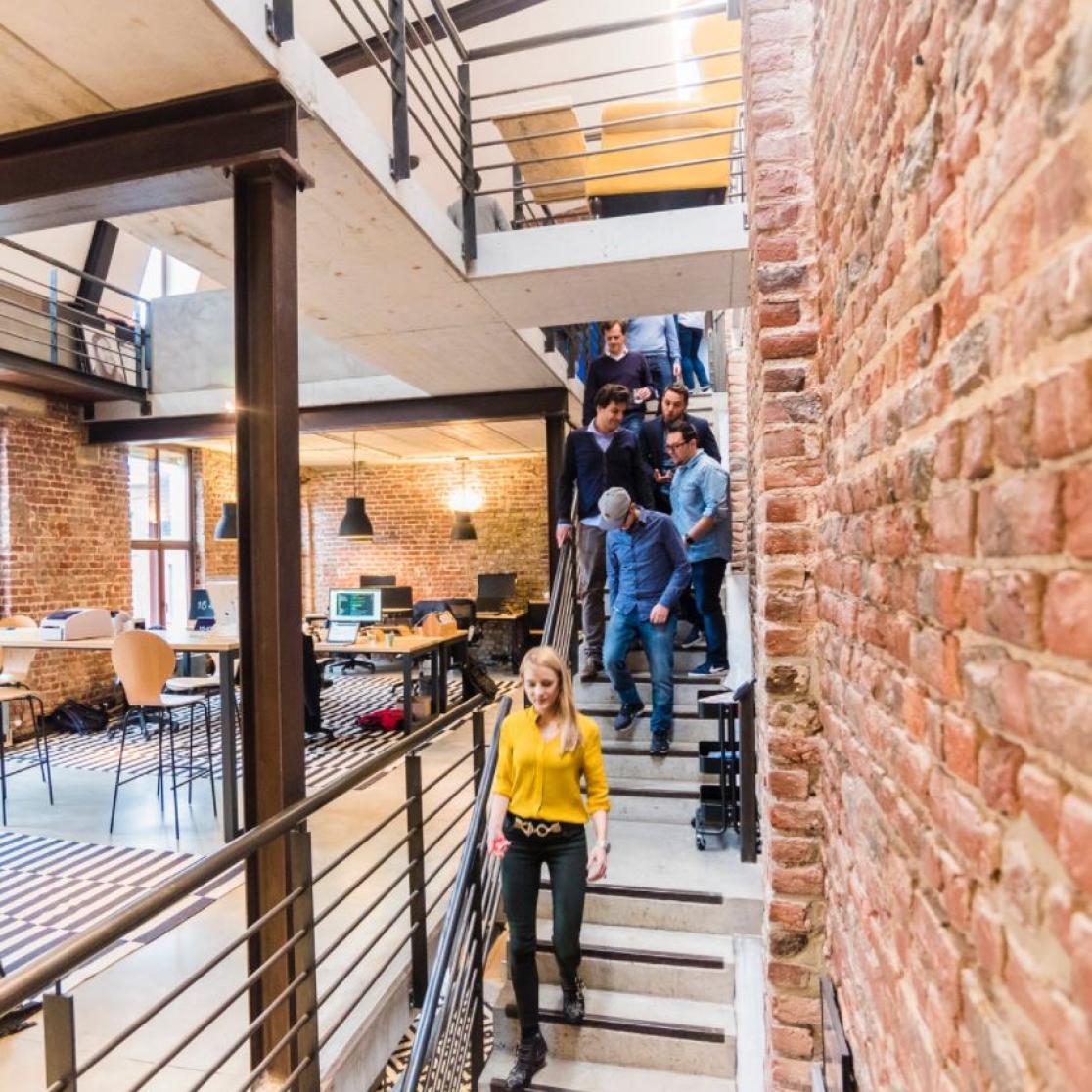Why this programme
CAST is quite exceptional in its combination of the arts and science and technology. Thereby the programme sets itself apart from arts and culture programmes (by including science and technology as creative practices) as well as STS programmes (by including the arts as material practices). CAST trains students with the conceptual tools and methods from the interdisciplinary field of STS (Science, Technology and Society studies) complemented by the humanities (e.g., history, philosophy, literature, and arts). The CAST programme focuses on developments in the 20th and 21st centuries, with some attention for the historical roots of today’s developments in earlier periods. The empirical focus on the arts, science and technology follows the research interests and expertise of the CAST staff, based at the UM Faculty of Arts and Social Sciences.
What will you learn?
In this programme, you will:
- Practice interdisciplinary research at the crossroads of science, technology and the arts
- Develop general research skills such as defining a research topic, writing, presenting and managing a project
- Acquire hands-on experience with methods such as interviewing, conceptual analysis, archival research, ethnographic observation, and rhetorical, narrative and discourse analysis

Perfect preparation for a research position
The Research Master in Cultures of Arts, Science and Technology is an intense and highly reputed programme. The programme is designed to give you the best possible preparation for a professional research position. During your master’s, you will therefore follow a number of courses that specifically focus on research methods such as qualitative interviewing, conceptual analysis, archival research, ethnographic observations and rhetorical, narrative and discourse analysis. Most importantly, you will actually learn to work with these methods by writing review papers, research papers and proposals. You will work closely with faculty research staff on their projects and gain a ‘behind-the-scenes’ look at how academic research is actually done. The programme not only prepares students for a PhD position. The knowledge and skills acquired in CAST give our students a good starting point for research and other positions outside academia (for example at governmental institutions, think tanks, museums and galleries, education, business, politics and policy making).
This programme is a good fit if you...
- Are interested in the intersections between art, science, technology and society
- Have the ability to take charge of your own learning
- Have an inquisitive, curious, creative, adventurous and open mind
- Have high scholarly abilities and a passion for critical inquiry, debate and writing
- Enjoy working in a small and closely-knit community of students and researchers
- Like to do your studies in an international context; we had students and teachers from different countries in the 2021-2022 programme.
A dedicated programme
This programme is dedicated to urgent questions of technology, science and arts in society. It brings plenty of opportunities to specialise in a topic that you find important. Based a thorough general understanding you may focus on various developments in technology, art and science. The technologies studied can be complex and simple, ranging from AI to street furniture; the practices of art are as diverse as those of music, contemporary visual arts and literature; the sciences you may write about include the natural sciences, psychology or neurosciences.
Teaching methods
CAST offers a curriculum that is oriented to the practice of research. It employs a combination of educational methods within the framework of Problem-Based Learning, such as tutorial groups, lectures, workshops, project work and research seminars. The programme relies on the mentor-mentee model to familiarise you with the latest methods in doing research, and you learn by doing. You will also participate in the regular research seminars of the faculty, giving you a ‘behind the scenes’ look at the practice of a large research institute.
With Problem-Based Learning (PBL), you will work individually or in small tutorial groups to work on authentic academic output. You will work on various research projects, experimenting with different research skills. Research methods are not taught in separate courses but are integrated into actual research projects on substantive research questions. Instructors act as facilitators, giving help as it is needed. This allows you to build independence and develop problem-solving skills that you will need in your career in Maastricht and abroad.
Learn from experts
You will attend expert lectures on methodological issues to support the work you do in the tutorial groups and workshops. During your thesis semester, the programme director will lead a series of seminars and master classes in which you will be able to discuss general aspects of your work, exchange experiences with your fellow students, present preliminary results and prepare for a ‘life after CAST’.

International classroom
From the first day of the programme, you will be challenged with differing viewpoints and experiences as you interact with staff and students from all over the world. Your preconceptions and worldview will be enhanced by this interaction, bringing you closer to the programme’s goal of teaching students not only facts and concepts but also international accessibility and understanding. In the academic year 2021/2022, the 9 first-year students in this master’s programme came from 8 different countries. Such diversity creates an international atmosphere that is strengthened by the international orientation of the programme.
Research internships
At CAST, we consider research internships an indispensable experience. You will gain practical and professional experience and the connections you need to find a position after you graduate. In the second year, you will work as a junior researcher at a research institute or partner university in the Netherlands or abroad.
Students have interned at:
- Australian Museum, Sydney, Australia
- Center for Art and Urbanity, Berlin, Germany
- Copernicus Institute, Utrecht University, the Netherlands
- Maastricht Sustainability Institute, Maastricht University, the Netherlands
- Munich Center for Technology in Society, Munich, Germany
- Rathenau Institute, The Hague, the Netherlands
- Technical University and Museum, Munich, Germany
- Padova Science Technology & Innovation Studies (PaSTIS), Padua, Italy
- Institute for Technology Assessment and Systems Analysis (ITAS), Karlsruhe Institute of Technology (KIT), Karlsruhe, Germany
- V2_Lab for Unstable Media, Rotterdam, the Netherlands
- Waag, Technology & Society, Amsterdam, The Netherlands
- Institute for Art and Innovation, Berlin
- Division of Humanities and Social Sciences, California Institute of Technology, USA
- Max Planck Institute of Art History, Berlin, Germany
- Studio Tomas Saraceno, Berlin, Germany

Master's thesis
You will write your master's thesis on a topic of your choice within the fields of CAST. While working on your thesis, you will also attend monthly seminars to discuss the research process with your peers and get expert support. In previous years, thesis topics have included:
- The role of imaginative expectations in NASA expeditions
- The use of new media in creating engaged museum visitors
- The rise of expertise on hearing damage in classical music orchestras
PREMIUM honours programme
PREMIUM is our Honours programme for high-performing master’s students. If selected, you will work in an interdisciplinary team on a project for a real client from the public or private sector (e.g. Cisco, DHL, EcoAct). Along with guidance from a project mentor, you will receive individual coaching focused on your personal and professional development. You will also attend several workshops and events designed to cultivate valuable knowledge and skills, as well as build a network that provides you with the best preparation possible for the job market.
Are you up for the PREMIUM challenge?

Excellent instructors
At CAST, we recognise that our students are talented in different ways, and our teaching staff will work hard to bring out the best in you. Our staff consists of a carefully selected group of highly-qualified researchers who have international track records. They contribute their knowledge and know-how to the programme as tutors, experts, curriculum designers, course coordinators and mentors. Are you curious about the staff and their specialisations? You can read more about them by clicking on their profiles below.
Dr. C. Ernsten
Programme Director
